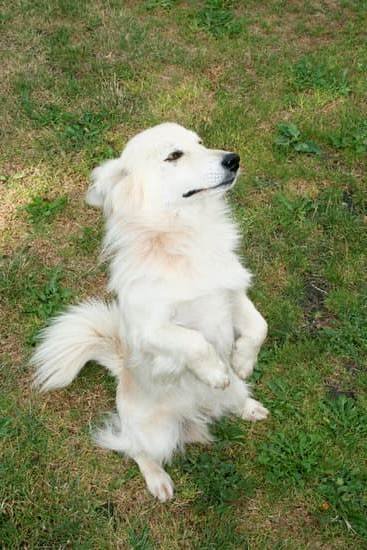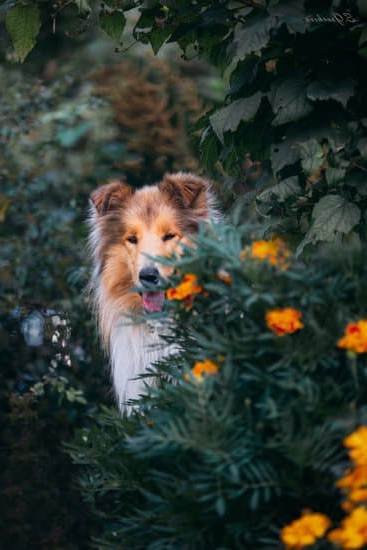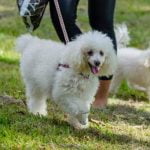Bernese Mountain Dogs are known for their gentle and affectionate nature, making them wonderful companions for families and individuals alike. In this article, we will explore how to train Bernese Mountain Dogs to be well-behaved, obedient, and socialized pets. From understanding their history and characteristics to overcoming common training challenges, we will cover everything you need to know to successfully train your Bernese Mountain Dog.
Originating from the Swiss Alps, Bernese Mountain Dogs were originally bred as working dogs, helping farmers with tasks such as herding cattle and pulling carts. Their strong build and intelligent nature make them versatile and trainable animals.
However, due to their large size and protective instincts, proper training is essential to ensure they are well-behaved members of the family. In this section, we will delve into the history and unique characteristics of Bernese Mountain Dogs that shape their training needs.
Understanding the temperament and behavior of Bernese Mountain Dogs is crucial when it comes to training them effectively. With their loyal and affectionate nature, these dogs thrive on positive reinforcement training methods. We will discuss how to harness these traits to set a solid foundation through basic obedience training techniques. Additionally, we will explore advanced training methods tailored specifically for Bernese Mountain Dogs, along with socialization tips to help them become well-adjusted members of the community.
Understanding the Temperament and Behavior of Bernese Mountain Dogs
The Bernese Mountain Dog is a large and gentle breed known for its loyalty and affectionate nature. Understanding their temperament and behavior is crucial when it comes to training them effectively. The breed was originally developed in Switzerland to work as farm dogs, pulling carts, driving livestock, and serving as watchdogs. They are known for being good-natured, calm, and strong, making them excellent companions for families and individuals alike.
When it comes to their behavior, Bernese Mountain Dogs are known to be sensitive and responsive. They thrive on positive reinforcement and do not respond well to harsh training methods. It is important to establish trust and build a strong bond with this breed in order to train them successfully. They are also very social animals and enjoy spending time with their human family members.
To train a Bernese Mountain Dog effectively, it is important to be patient, consistent, and gentle. Positive reinforcement techniques such as using treats, praise, and toys can be very effective in teaching them new commands and behaviors. It is also important to provide mental stimulation for this intelligent breed through interactive games, puzzles, and training activities.
| Characteristic | Description |
|---|---|
| Temperament | Loyal, affectionate, good-natured |
| Behavior | Sensitive, responsive, social |
| Training Techniques | Positive reinforcement, consistency, patience |
Setting the Foundation
Bernese Mountain Dogs are known for their gentle and affectionate nature, making them great companions for families. However, it is important to establish a strong foundation of basic obedience training to ensure that they are well-behaved and obedient. Here are some tips on how to train Bernese Mountain Dogs with basic obedience training.
Consistency Is Key
When training a Bernese Mountain Dog, consistency is crucial. Use the same commands and hand signals each time you train them. This will help them understand what is expected of them and make the learning process more effective.
Reward-Based Training
Bernese Mountain Dogs respond well to positive reinforcement, so it’s important to use rewards such as treats, praise, or playtime when they exhibit the desired behavior. This will motivate them to continue behaving in a positive manner.
Teaching Basic Commands
Start with teaching your Bernese Mountain Dog basic commands such as sit, stay, come, and down. These commands are essential for their safety and well-being. Use short and clear commands, and be patient when teaching them these behaviors.
By setting a strong foundation of basic obedience training for your Bernese Mountain Dog, you can ensure that they grow up to be well-behaved and obedient companions. Remember to be patient and consistent in your training approach, and always use positive reinforcement to encourage good behavior. Understanding the temperament of this breed will also help you tailor your training methods to best suit their unique characteristics.
Advanced Training Techniques for Bernese Mountain Dogs
Building on Basic Obedience Training
Once your Bernese Mountain Dog has mastered the basic obedience commands such as sit, stay, and come, it’s time to move on to more advanced training techniques. One important skill to focus on is leash training, as Bernese Mountain Dogs are a large and strong breed.
Teach them to walk calmly on a leash without pulling, which will make walks much more enjoyable for both you and your dog. Additionally, advanced obedience commands like “heel” and “leave it” can be useful in various situations.
Advanced Behavioral Training
Bernese Mountain Dogs are known for their gentle and affectionate nature, but they can also be prone to separation anxiety and timid behavior. Advanced training techniques can help address these issues, such as desensitization exercises to help with separation anxiety or confidence-building activities to counteract shyness. Positive reinforcement and consistency are key when working on these behavioral challenges.
Specialized Training
In addition to basic obedience and behavioral training, consider specialized training for specific activities with your Bernese Mountain Dog. This could include agility training, therapy work, or even advanced tricks and tasks. Not only will these activities provide mental stimulation for your dog, but they can also strengthen the bond between you and your furry companion.
Finally.
When exploring advanced training techniques for Bernese Mountain Dogs, always keep in mind that each dog is unique and may progress at their own pace. Patience, consistency, and positive reinforcement are essential in any advanced training program for this wonderful breed. With dedication and the right approach, you can help your Bernese Mountain Dog reach their full potential as a well-trained companion.
Socialization Tips for Bernese Mountain Dogs
Socialization is an important aspect of training for Bernese Mountain Dogs. Proper socialization helps them become well-adjusted, confident, and friendly adults. This process involves exposing your Bernese Mountain Dog to a wide range of people, animals, places, and experiences in a positive manner. The critical period for socialization is between 3 weeks and 3 months of age. However, it’s never too late to start socializing your Bernese Mountain Dog.
One effective way to socialize your Bernese Mountain Dog is by enrolling them in puppy kindergarten classes. These classes provide an opportunity for puppies to interact with other dogs in a controlled environment under the supervision of a professional trainer. Additionally, regular visits to dog-friendly parks or pet stores can help expose your dog to different sights, sounds, and smells.
When socializing your Bernese Mountain Dog, it’s important to monitor their body language and behavior. If they seem fearful or overwhelmed, it’s best to remove them from the situation and try again at a slower pace. It’s also essential to ensure that all interactions with other dogs and people are positive and rewarding for your Bernese Mountain Dog.
Consistency is key when it comes to socialization training for Bernese Mountain Dogs. By exposing them to various stimuli from an early age and reinforcing positive interactions throughout their lives, you can help ensure that they grow up to be well-mannered and sociable companions.
Understanding how to train a Bernese Mountain Dog doesn’t just involve obedience commands but also includes providing them with the necessary exposure to different environments and situations in a positive way in order to help them develop into well-rounded adult dogs.
Training Tips for Walking and Exercise With Bernese Mountain Dogs
The Bernese Mountain Dog is a large and powerful breed, known for its friendly and affectionate nature. Due to their size and strength, it is essential to train them properly for walking and exercise to ensure both their safety and the owner’s.
Here are some training tips for walking and exercising with Bernese Mountain Dogs:
1. Start with basic leash training: Begin by teaching your Bernese Mountain Dog to walk on a leash without pulling. Use positive reinforcement such as treats or praise to encourage good behavior. Gradually increase the duration of walks as your dog becomes more comfortable on the leash.
2. Incorporate regular exercise: Bernese Mountain Dogs are a working breed and require plenty of exercise to keep them happy and healthy. Include daily walks, playtime, and interactive activities such as fetch or agility exercises to keep them mentally stimulated.
3. Consider off-leash training: Once your Bernese Mountain Dog has mastered walking on a leash, you may want to consider off-leash training in safe, enclosed areas. This allows them to run freely and release excess energy while still obeying commands.
Remember that consistency is key when it comes to training any dog, including the Bernese Mountain Dog. By following these tips and remaining patient and consistent, you can effectively train your Bernese Mountain Dog for walking and exercise.
Tips for Training Bernese Mountain Dogs for Specific Activities (Eg Agility, Therapy Work)
Bernese Mountain Dogs are a versatile and intelligent breed, making them excellent candidates for specific activities such as agility and therapy work. Training your Bernese Mountain Dog for these activities can be both fulfilling and beneficial for both the dog and the owner. Here are some tips for training your Bernese Mountain Dog for specific activities:
- Start with basic obedience training: Before delving into specific activities, it’s important to establish a strong foundation of obedience training. This will provide a solid framework for more advanced training in agility or therapy work.
- Agility training: When training your Bernese Mountain Dog for agility, focus on exercises that promote balance, coordination, and endurance. Start with basic obstacles such as tunnels, jumps, and weave poles, then gradually introduce more complex courses.
- Therapy work training: For therapy work, focus on socialization and calm behavior in various environments. Expose your Bernese Mountain Dog to different people, sounds, and settings to ensure they are comfortable and well-behaved during therapy visits.
When training your Bernese Mountain Dog for specific activities such as agility or therapy work, it’s important to tailor the training sessions to suit their individual strengths and abilities. Positive reinforcement techniques such as treats, praise, and play can be incredibly effective in motivating these gentle giants to excel in their chosen activity.
In addition to regular training sessions, it’s also crucial to prioritize the physical and mental well-being of your Bernese Mountain Dog. Regular exercise, mental stimulation, and proper nutrition are essential to maintain their overall health and happiness while participating in specific activities. With patience, consistency, and a deep understanding of your Bernese Mountain Dog’s unique traits, you can successfully train them for various fulfilling activities.
Common Training Challenges and How to Overcome Them With Bernese Mountain Dogs
In conclusion, training a Bernese Mountain Dog can be a rewarding experience for both the owner and the dog. Understanding their history and characteristics is essential in knowing how to approach their training. Their gentle and affectionate nature makes them great candidates for obedience training, but it’s important to be patient and consistent with them.
While basic obedience training lays the foundation for good behavior, advanced training techniques can help harness their intelligence and willingness to learn. It’s important to challenge them mentally and physically to keep them engaged and satisfied. Socialization is also key for Bernese Mountain Dogs, as they thrive on human interaction and companionship.
When it comes to specific activities like agility or therapy work, it’s important to tailor the training methods accordingly. Each Bernese Mountain Dog is unique, so understanding their individual strengths and weaknesses will help in developing a successful training plan. Additionally, overcoming common training challenges such as stubbornness or distractions requires perseverance, positive reinforcement, and understanding the breed’s specific needs.
In essence, knowing how to train a Bernese Mountain Dog involves patience, consistency, and understanding their unique characteristics. With the right approach, these beautiful dogs can become well-behaved companions that excel in various activities while forming strong bonds with their owners.
Frequently Asked Questions
Are Bernese Mountain Dogs Easy to Train?
Bernese Mountain Dogs are known to be intelligent and eager to please, which can make them relatively easy to train. However, their stubborn streak and independent nature may require consistent and patient training methods.
How Do You Discipline a Bernese Mountain Dog?
When disciplining a Bernese Mountain Dog, it’s important to use positive reinforcement techniques rather than punishment. This breed responds well to praise, treats, and consistent training routines. Harsh or physical discipline can lead to fear or aggression.
Are Berners Hard to Potty Train?
Potty training a Bernese Mountain Dog can be challenging due to their stubbornness and large size. Consistency, positive reinforcement, and establishing a routine are key factors in successfully potty training a Berner. It may take time and patience, but it is achievable with the right approach.

Welcome to the blog! I am a professional dog trainer and have been working with dogs for many years. In this blog, I will be discussing various topics related to dog training, including tips, tricks, and advice. I hope you find this information helpful and informative. Thanks for reading!





